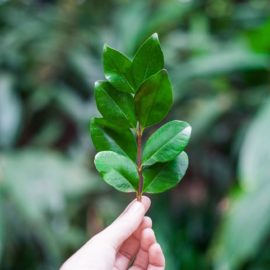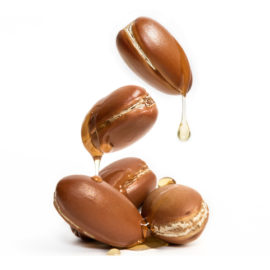Self-care and well-being are increasingly relevant for consumers, a very relevant trend that is already shaping the cosmetics market and shouldn’t be underestimated. These healthy, nature-oriented consumers have motivated a steep rise of protective claims in cosmetic products, often linked to one key botanical ingredient.
Meanwhile, the concept of protection has broadened to include many different ways to understand it: from photoprotective qualities to color-protecting hair products and products for sensitive skin, this new approach to beauty and self-care is integrative and understands mind and body as a whole.
Following this direction, it’s no surprise that brands are quickly adjusting, in an effort to give consumers what they’re looking for. In fact, the share of body, hand and footcare launches with a botanical ingredient as a main claim is the fastest-growing claim in the industry, with a share of 74% between July 2019 and June 2020, according to Mintel.
As consumers increasingly value well-being and connection with nature, brands in the BPC market are waking up to this and taking it as a powerful storytelling opportunity where adding a botanical ingredient can make all the difference.
The gingko biloba extract provides a great chance to dissect these trends and gives an example of what direction brands should be following.
We analyse the potential for great nature-oriented narratives within the cosmetics and personal care market.
Content
Shinrin yoku: the Japanese ritual for nature lovers and botanical cosmetics
Along with a focus on natural ingredients, the cosmetic industry has lately also incorporated a fresh look towards traditional knowledge and medicine, heritage and rituals in order to look for inspiration.
Shinrin yoku provides a great example of this. This term, long incorporated into Japanese culture, can be literally translated into “forest bath”, shinrin meaning “forest” and yoku, “bath”.
This word defines the healing properties and well-being that humans access when connected with nature, this being exemplified by the joy arising from taking even a short walk in a park or a forest.
Merging with nature, perceiving its vibrant sounds and aromas, the warm rays of light and the fresh air, listening to the crunch of the undergrowth when walking… These are all gestures that stimulate all our senses and place us in the present moment, removing worries and stress, enlivening our purest energy and vitality. And this is exactly what shinrin yoku is about.
Traditional Japanese culture acknowledged this powerful connection between humans and nature by giving it its own word, but there is also robust scientific proof that being in touch with nature is actually healing.
In fact, a study found out that forest environments stimulate lower concentrations of cortisol (the “stress hormone”), a lower pulse rate and lower blood pressure, among other positive outcomes for forest walkers.
This feeling of well-being can easily be transferred into the natural cosmetics narrative, where taking care of one self and being in touch with a botanical ingredient restores both mental and physical health, having an effect on a healthier and fresher appearance for both skin and hair.
Ginkgo biloba: the botanical ingredient to bring shinrin yoku to life
In light of this new consumers’ interest in products based on a botanical ingredient, a number of opportunities arise for brands. This represents a chance for brands to transform their narratives and boost their reach, while also taking a stand for products with protective and preventive claims.
For instance, this might be the moment to focus on products based on the strength and protective power of trees. Drawing from science and traditional knowledge, each tree species can present its own benefits, from color protecting hair products, to strengthening claims, and products for sensitive or dehydrated skin.
Provital’s Ginkgo biloba extract fits within this storytelling opportunity. Being the “oldest species of terrestrial tree” native to China, this water-soluble extract provides a wide range of cosmetic advantages, including anti-aging, anti-irritant and photoprotective benefits, while also protecting hair color and having anti-cellulite and circulation benefits.
Find out more about storytelling opportunities that nature-oriented brands and consumers in our free ebook ‘Rituals of the world for happiness’, where you’ll find more inspiration with selected natural extracts related to traditional rituals for well-being.
No comments yet
There are no comments on this post yet.






Leave a comment